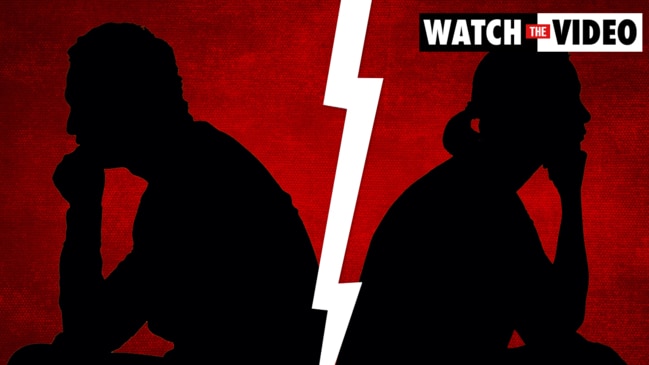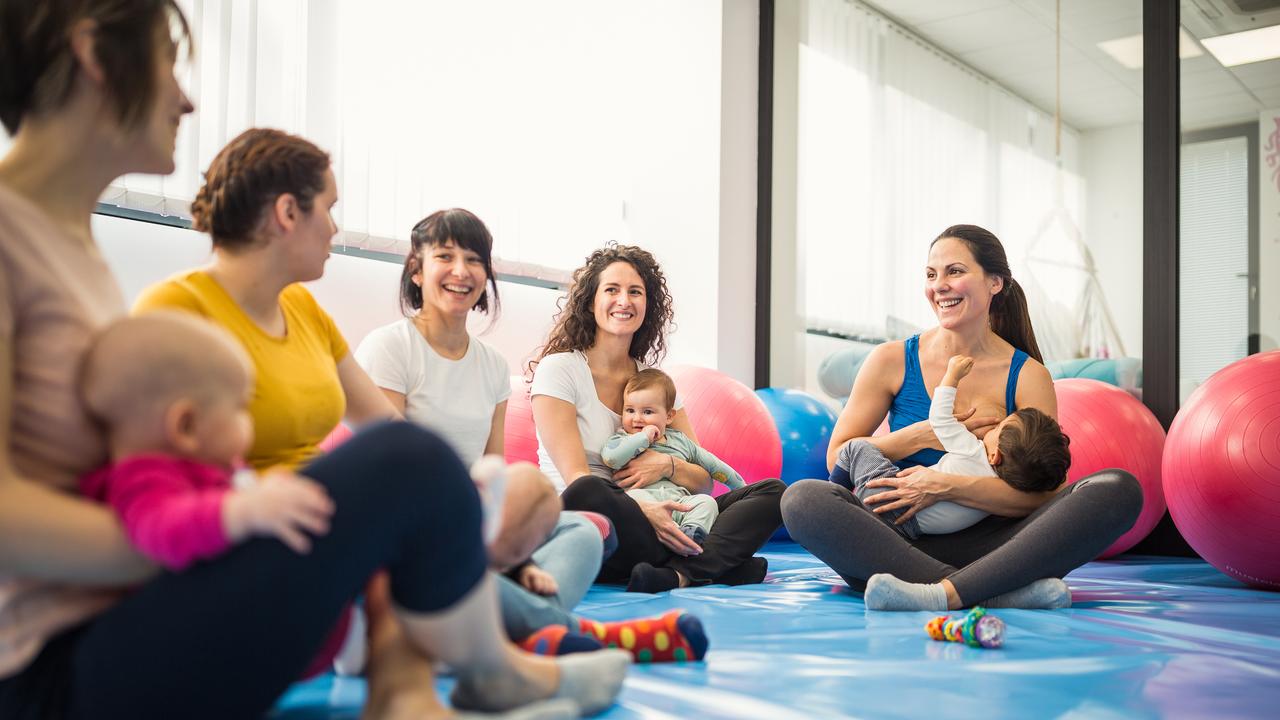‘My wife is a wreck from being with our new baby and I don’t want to go home’
A husband had laid out exactly what it’s like to go home to his wife since their baby was born – and how it makes him want to leave her.

Welcome to Relationship Rehab, news.com.au’s weekly column solving all your romantic problems, no holds barred.
This week, our resident sexologist Isiah McKimmie helps a man concerned for his marriage after the birth of a baby.
Question: We are new parents with a 12-month-old and continuously fighting, arguing and bickering. I’m exhausted from work and lack of sleep and my wife is a wreck from being at home all day. I don’t want to go home as I know it will just mean more rows and arguments. We don’t see or hear each other and don’t care about each other much anymore. We don’t want to separate as we don’t want that for our son. We just need to learn how to communicate better as it always escalates and we’re tired and over it. How do we break this cycle?

Answer: It’s not surprising you’re struggling. While the idea of becoming parents is exciting, reality can hit home hard. Having a young baby is a tough time for couples. Even the strongest relationships can be tested by the transition to parenthood.
It’s normal for relationship satisfaction to drop after children
You’re not alone in experiencing these challenges. About two thirds of couples report a decline in relationship satisfaction in the first three years of their baby’s life. They notice failing connection, increased arguments and decreased sexual satisfaction (and sometimes no sex for many months).
You’ve both been thrust into new roles that require not just an adjustment of your schedule but your identity too. The stress and utter exhaustion you both feel is overwhelming.
Steps you can take to strengthen your relationship after becoming parents
It’s important for your own wellbeing and that of your baby that you address this, and the good news is there are steps you can take to break the cycle.

Make time for connection and intimacy together
It’s important for parents with children of any age to continue prioritising their relationship and to find time to connect. These might only be small moments, but small steps each day can make a difference.
As a start, try to find time to connect with each other that doesn’t involve discussing your relationship frustrations or talking logistics.
Take time to share what’s happening for you, ask each other questions about life. These Conversation Starters can help.
Look for what you appreciate in each other
You’re both stretched right now and you’re both doing your best. Look for the positives in each other and share what you appreciate.
We all like to know that we’re appreciated. Sharing appreciation for each other verbally can help you break the cycles of hurt that you’re in and rebuild connection.
Understand each other’s needs
You both need each other’s support now more than ever. It’s tough when you’re both struggling, but try to understand each other’s needs. Look for small ways to support each other and work as a team.

Learn more effective communication strategies
It’s hard to have conversations when you’re both exhausted and stressed. Little things can turn into big things pretty quickly when you’re both on edge. Being mindful of how you communicate can help.
– Avoid blame or criticism of each other.
When sharing an upset, focus on your own emotions, not what your partner has ‘done wrong’
– Acknowledge your partner’s perspective – even if you don’t agree with it
– Avoid defensiveness. Instead take responsibility for how you might have contributed to your partner’s hurt
– Ask questions when you don’t understand your partner’s perspective
Look ahead to your future
Things are hard right now, but they won’t always be this way. Look ahead to your future and to positive goals that you have together. Talk together about your hopes and dreams – and the values you want your growing family to share.

Get support
The old adage ‘it takes a village’ holds true. You’re going to need as much support as you can get.
If it’s possible for you, reach out to your family and friends for both practical and emotional support. If your partner hasn’t already, it may be helpful for her to join a mother’s group to get understanding from others in a similar situation.
These cycles of hurt and arguments are difficult to break on your own. It takes time (and support) to introduce new ways to communicate with each other and to maintain them.

If you can, reach out to a couples therapist for support. As a neutral third party, they can help you implement new ways of connecting and communicating.
Isiah McKimmie is a Couples Therapist, Sexologist, Sex Therapist and Lecturer. To book a session with her, visit her website or follow her on Instagram for more advice on relationships, sex and intimacy.
If you have a question for Isiah, email relationship.rehab@news.com.au






